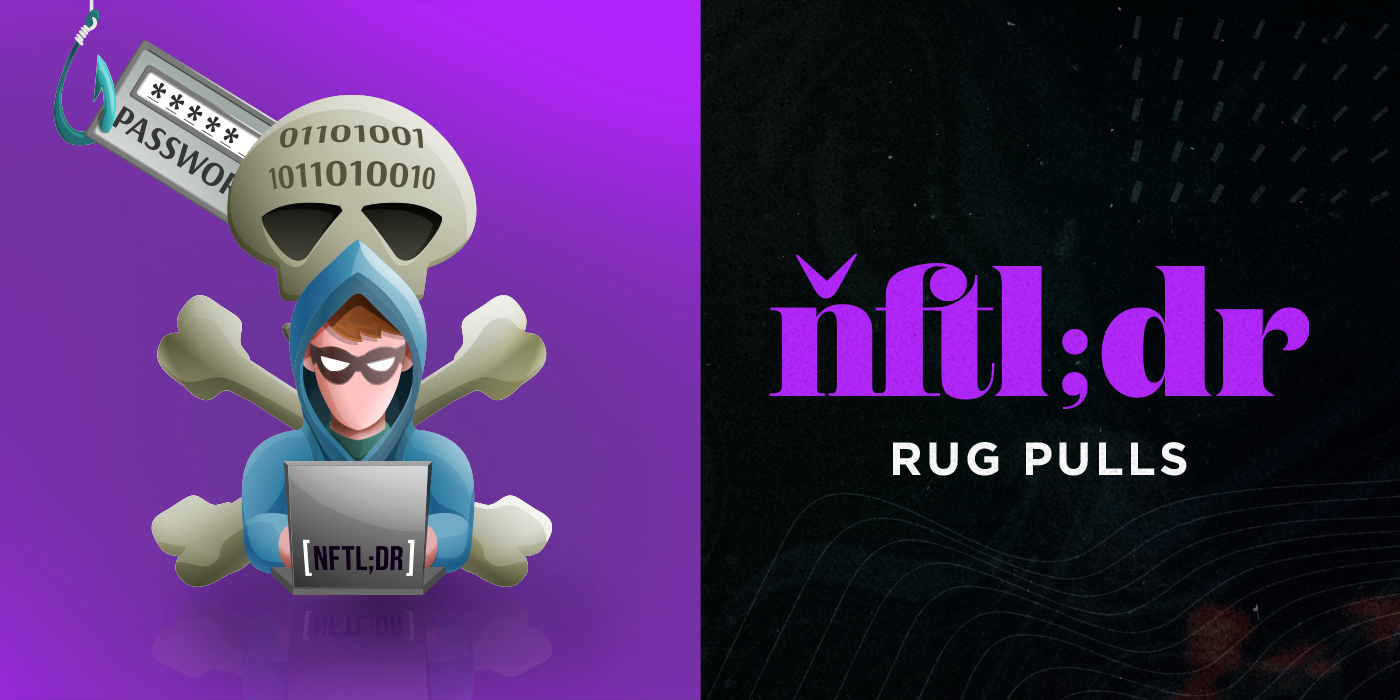Every week we simplify the market into key points so you can stay up to date on market trends, upcoming drops, top project guides and much more!
BY Eric James Beyer
August 08, 2022
A rug pull is a specific type of scam in the NFT world. It happens when the developers of an NFT project maliciously lure in a community of investors and then quickly abandon the project, making off with the money in the process. This can happen when the founders steal away with project funds after launching the project, but also if they sell off their pre-mined holdings.
In either case, it’s a way of siphoning money from the community, leaving investors with an NFT that has no utility or community behind it, and sometimes, no NFT.
But only two kinds of rug pulls exist: hard and soft, and only one of them is illegal.
Hard rug pulls are when developers use the coding in their NFT project’s smart contract to steal investors’ funds. This kind of contract can lock investors into a digital asset with either no utility or a project without direction. These kinds of rug pulls are illegal, as the code serves as evidence of developers’ intent to deceive their investors.
Soft rug pulls are not illegal, and this makes them arguably more sinister. The smart contract code isn’t designed to defraud investors, but developers can still dump their assets without warning, devaluing the NFT in a heartbeat. In recent years, several rug pulls have caused an NFT project’s Discord, website, Twitter, and everything else to disappear mere minutes after that project’s launch. Developers might have promised their community a road map, donations to charity, and many of other things. Still, if they dump the project and abscond with the money, it’s technically not illegal.
Rug pulls are now a well-known phenomenon in the NFT community, and progressively more people are increasingly aware of how to spot and stay away from projects they think are likely to do this. The infamous move has also gained the attention of regulatory bodies like the Department of Justice and the Securities and Exchange Commission.
In fact, after a two-month investigation on March 24, 2022, prosecutors from the Southern District of New York arrested and charged the founders of the notorious Frosties NFT project with conspiracy to commit fraud, in addition to conspiracy to commit money laundering, after they rug-pulled their community to the tune of $1.3 million. Such lawsuits could disincentivize potential scammers.
Want to know everything about NFTs? See our comprehensive guide. Prefer having the key points explained in under 400 words? See the other articles in our NFTL;DR series:
Author
Administraroot

